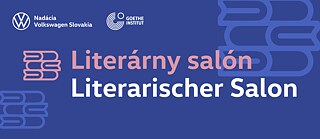

Učiť sa nemčinu
Naše skúsenosti, Váš úspech

Goetheho inštitút prináša nemčinu do celého sveta. Vo viac ako 90 krajinách ponúkame kurzy a skúšky nemeckého jazyka.
Témy
Ťažisko našej práce

Naše skúsenosti, Váš úspech

Goetheho inštitút prináša nemčinu do celého sveta. Vo viac ako 90 krajinách ponúkame kurzy a skúšky nemeckého jazyka.
Ťažisko našej práce